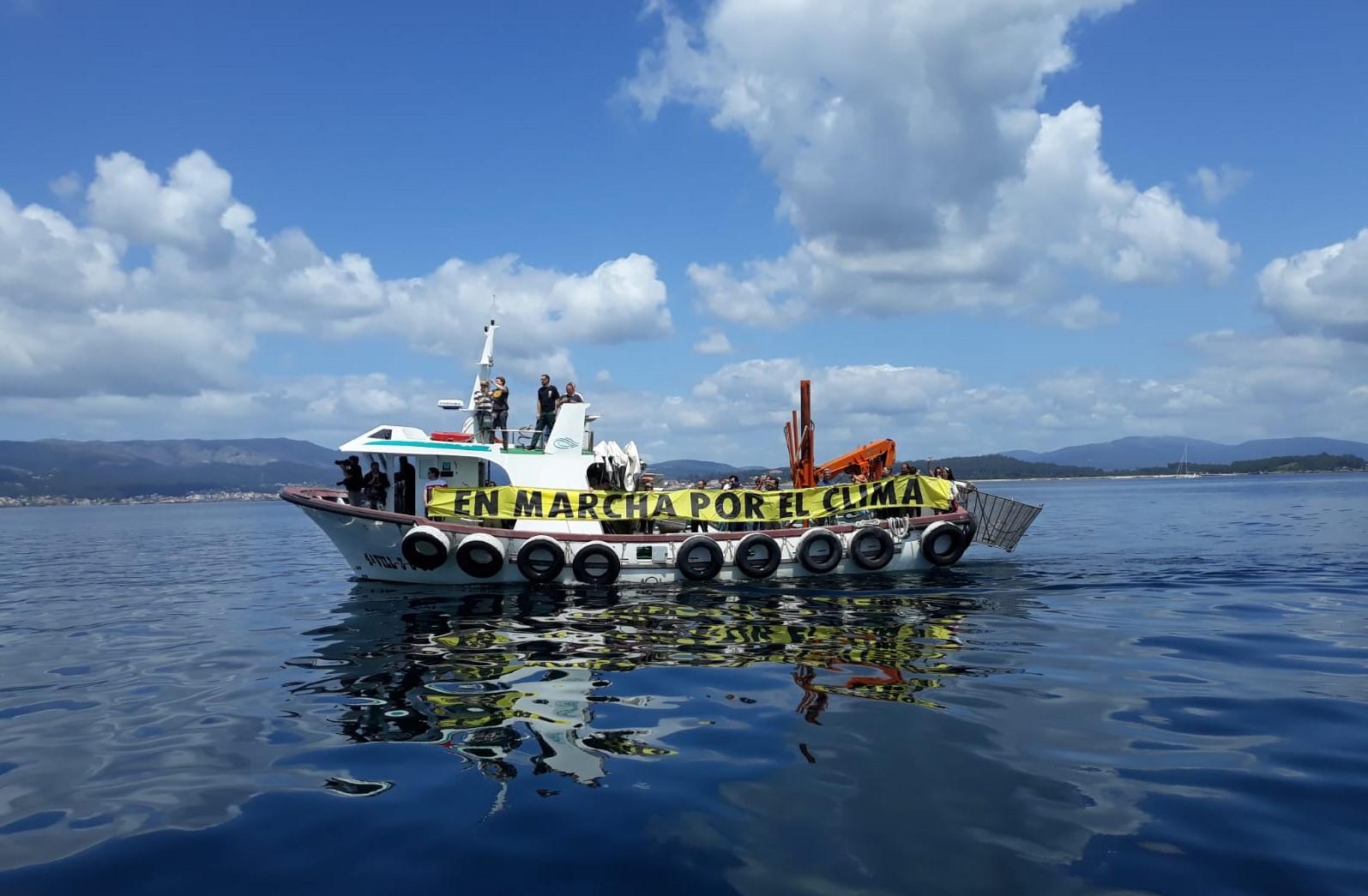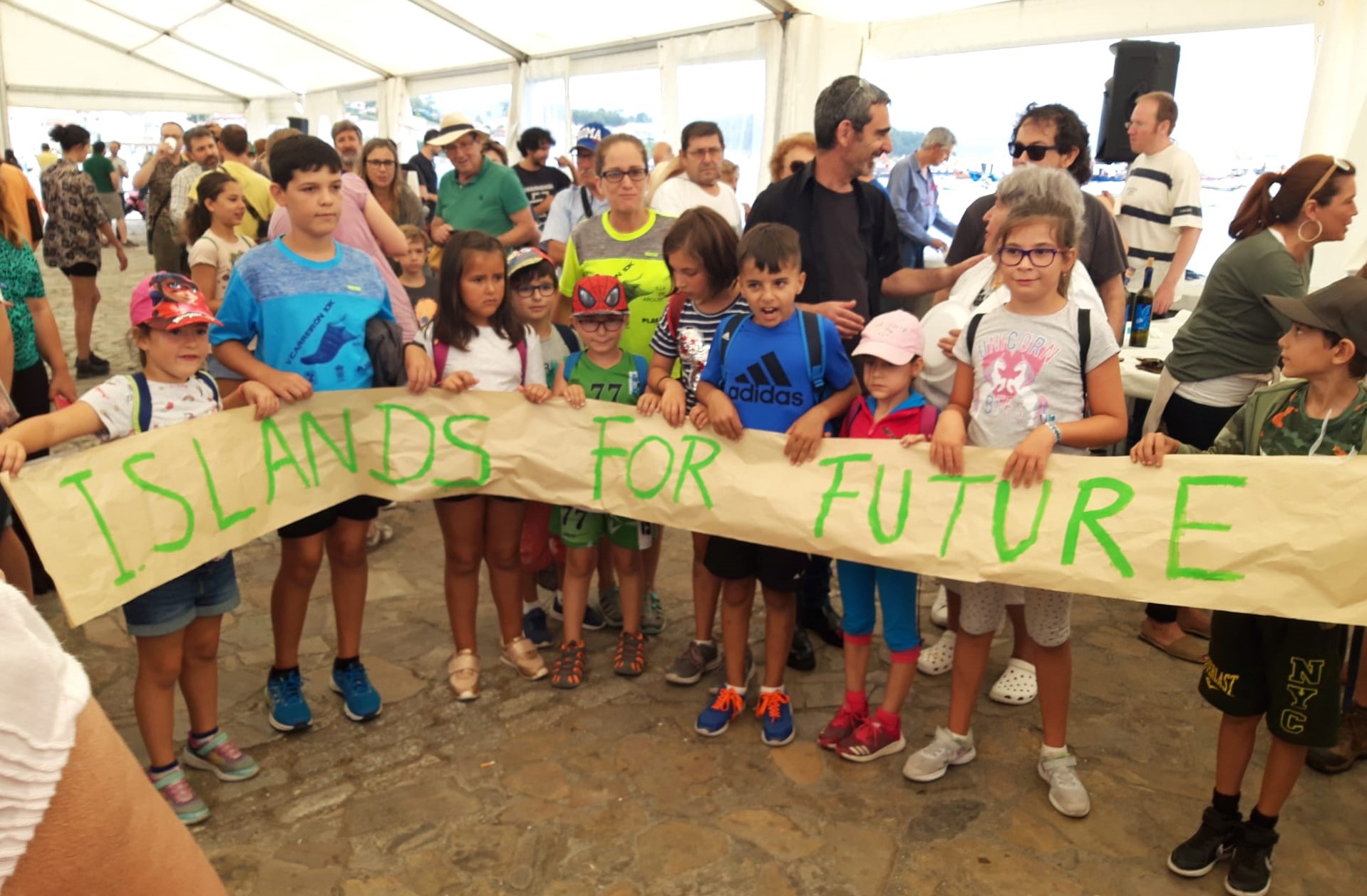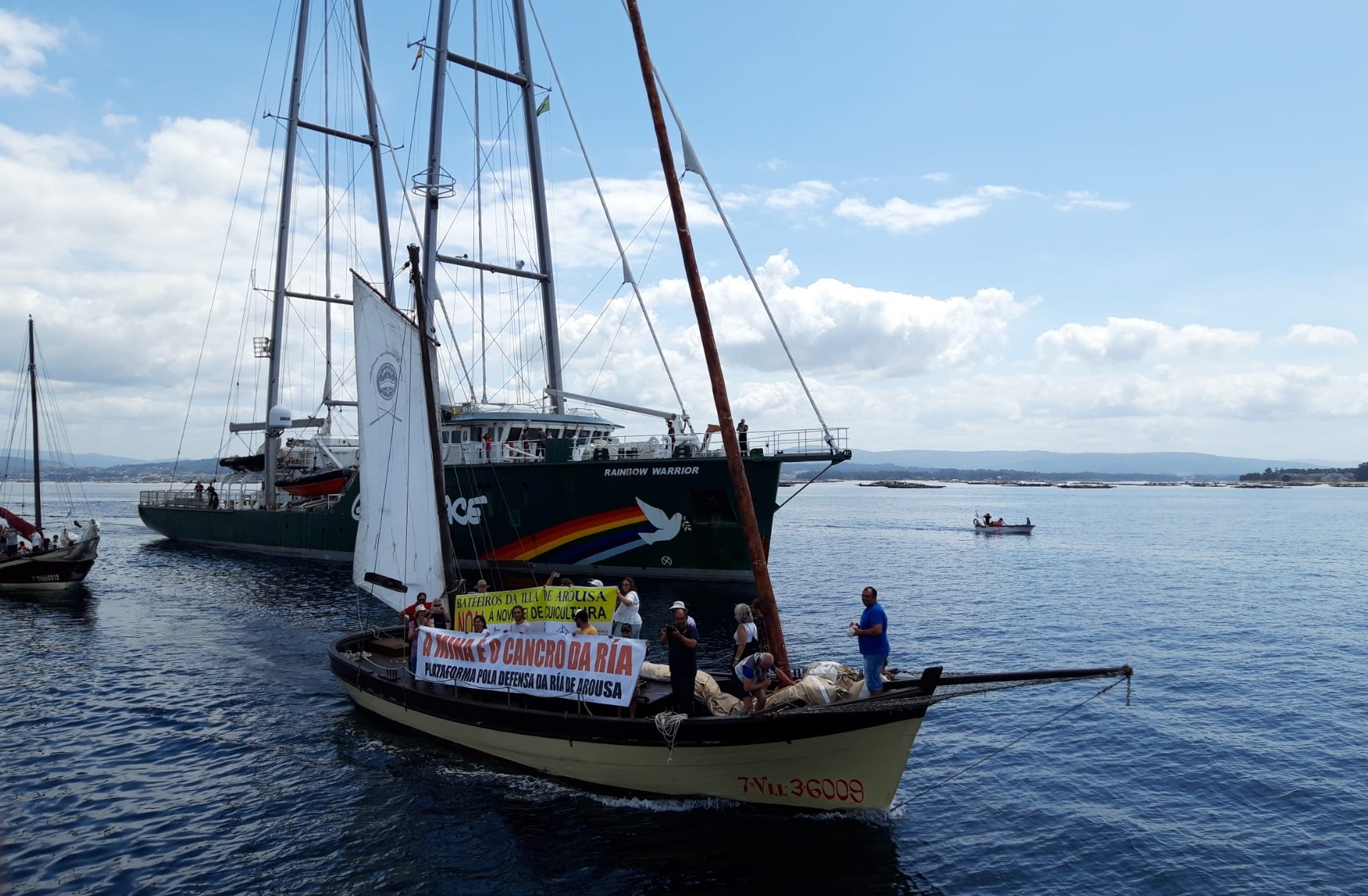
Clean energy transition was the heart of the party at the Illa de Arousa Energy Days from 29-30 July. Organised by the local energy transition team in collaboration with the cooperative Nosa Enerxia, citizens and other stakeholders from the island as well as the mainland were able to learn about the clean energy transition on Arousa, and about how national and European institutions can support the local community in their efforts to go CO2-free.
The event received special attention through an international guest: the Greenpeace Rainbow Warrior boat and its crew. The second day of the Energy Days further coincided with the 5th anniversary of Nosa Enerxia, one of the partners in the local transition team.
The event kicked off on a sunny Monday evening, with over 60 local and regional participants, including a local Member of the European Parliament Nicolás González Casares discussing Arousa’s clean energy transition with the island’s Environment Counselor Gabriele von Hundelshausen, as well as representatives from the Spanish government’s Institute for Energy Diversification (IDAE), the Spanish cooperative association Union Renovables, and the Clean Energy for EU Islands Secretariat.
Islands for future

The second day coincided with the 5th anniversary of the Galician REScoop Nosa Enerxía S. Coop. Galega, who offered a wide range of activities for citizens to discover different aspects of the energy transition:
Fuelled by a delicious paella made by famous cook Kuki, citizens were able to learn about different ways the energy transition could look in their own homes – including electric cars, solar panels, and even solar cooking as popcorn and coffee were served prepared in a solar cooker. The event gathered more than 250 people overall, including the children from the playroom of A Illa de Arousa, and MEP and Member of Nosa Enerxía Ana Miranda.
Setting sail for the energy transition was the motto of the day, as different local boats joined the Rainbow Warrior leaving the Ría de Arousa in the afternoon.
What’s next for Arousa’s energy transition?
The discussions particularly on the first day showed a genuine interest and willingness by the local community to embark on the clean energy transition. People voiced their concerns about the impacts of climate change on their island, particularly on the local fishing businesses. Another key area of concern was air pollution – the island currently has about 3000 cars for the island’s 5000 citizens.
Using Google Maps during the workshop, Nosa Enerxia facilitated a simulation of how the island could use community purchase to increase the share of renewable energy on the island whilst keeping it in the hands of the local population. The discussion also brought to light some constraints in Spain’s current legislation with regards to shared energy consumption.
The simulation further led to a conversation about the cooperative model. Alfonso García Márquez from Union Renovables explained how cooperatives have been able to make significant contributions to the clean energy transition, even in times when government support was lacking. He further explained how the cooperative model brings economic benefits and how it can improve the overall wellbeing and development of a local community.

A clear challenge for the island will be the question of how to decarbonise mobility, both on land and at sea. With fishing being an important source of income on Arousa, the transition team is currently exploring possibilities of a first pilot electric fishing boat. When it comes to mobility on land, the community still has some important choices to make. Despite the favourable conditions for cycling on the island (small size, flat surface, moderate climate), it became clear that such a change of behaviour currently feels like an important challenge for Arousa’s citizens. The favoured option at the moment of the event by participants seemed to be to close the city centre to cars to reduce air pollution, and to build additional roads around the island to avoid congestion.
These discussions highlighted one of the key challenges to the clean energy transition which all communities big and small face across the world: despite a common understanding of the severity of climate change and of the urgency to act, adversity to changing our habits often still runs deeper than the realization that it is inevitable if human society is to tackle climate change effectively.
A Illa de Arousa can be a real example of a community getting together to tackle this important challenge. The Secretariat looks forward to working with the local community on their clean energy transition.
To find out more about Arousa’s clean energy transition, check out their island page >>















